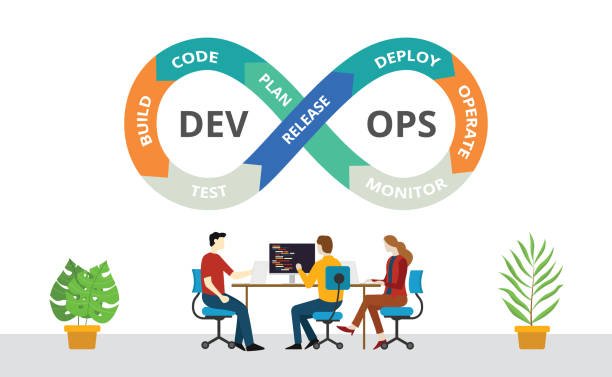
Cloud Adoption: Why it’s Essential for Modern Businesses
2023-01-14
5 Important aspects of Cloud Architecture Design for Businesses
2023-04-06Why organizations go for outsource DevOps? As organizations adopt agile methodologies, there is an increasing need for more efficient software development and deployment processes. DevOps has emerged as a powerful approach that combines development and operations to streamline the software delivery process. However, implementing DevOps requires specialized skills, infrastructure, and tools, which can be expensive and time-consuming for organizations to set up and maintain in-house. Outsource DevOps to a specialized provider can help organizations reduce costs, increase efficiency, and focus on core competencies. In this blog post, we will explore the benefits of outsourcing DevOps and best practices for selecting a provider.
Table of Contents
Outsource DevOps and its Benefits :
1- Access to specialized skills and expertise:
DevOps requires a unique set of skills that combines development, operations, and automation. Hiring and training DevOps experts in-house can be a significant investment in terms of time and resources. Outsource DevOps to a specialized provider enables organizations to access specialized skills and expertise without having to invest in training or hiring additional personnel.
2- Improved efficiency and productivity:
By outsource DevOps, organizations can focus on core competencies, while the provider manages the DevOps infrastructure, tools, and processes. This allows organizations to be more productive and efficient, as they can allocate more resources to software development and innovation. The provider can also automate many of the manual tasks associated with software development and deployment, reducing errors and improving reliability.
3- Reduced costs:
Outsourcing DevOps can help organizations reduce costs in several ways. First, it eliminates the need to invest in specialized infrastructure, tools, and personnel. Second, it allows organizations to pay only for the services they need, rather than investing in a full-time DevOps team. Finally, outsource DevOps can help organizations avoid costly mistakes that can result from inadequate infrastructure or processes.
4- Improved scalability and flexibility:
Outsourcing DevOps to a specialized provider enables organizations to scale up or down quickly based on changing needs. The provider can manage the infrastructure, tools, and processes required to support software development and deployment, allowing organizations to focus on their core competencies. Additionally, the provider can offer a range of services that can be tailored to meet the specific needs of each organization.

Best Practices for Selecting a DevOps Provider:
1- Assess your needs:
Before outsourcing DevOps, organizations should assess their needs and identify their goals. This includes evaluating current processes, infrastructure, and tools, as well as identifying areas for improvement. By understanding their needs, organizations can choose a provider that can offer services tailored to their specific requirements.
2- Evaluate provider expertise:
When selecting a DevOps provider, organizations should evaluate the provider’s expertise in terms of tools, processes, and technologies. This includes assessing the provider’s experience with DevOps best practices, as well as their ability to support multiple platforms, technologies, and programming languages.
3- Review provider security and compliance:
DevOps providers handle sensitive information and play a critical role in software development and deployment. As such, it is important to select a provider that has robust security measures and compliance policies in place. Organizations should review the provider’s security and compliance policies and ensure that they align with their own policies and regulatory requirements.
4- Evaluate provider culture and communication:
Outsourcing DevOps requires a high level of collaboration and communication between the organization and the provider. As such, it is important to select a provider that has a culture that aligns with the organization’s values and priorities. Additionally, organizations should evaluate the provider’s communication channels and protocols to ensure that they can communicate effectively and efficiently.
Conclusion:
Outsourcing DevOps can provide significant benefits for organizations looking to improve their software development and deployment processes. It can help reduce costs, increase efficiency and productivity, and improve scalability and flexibility. However















